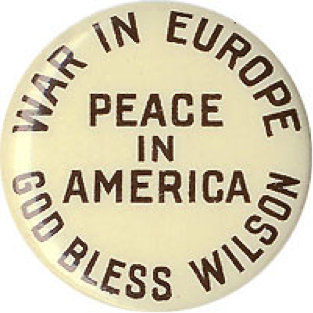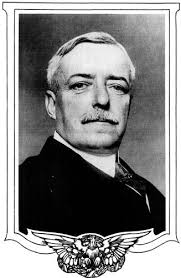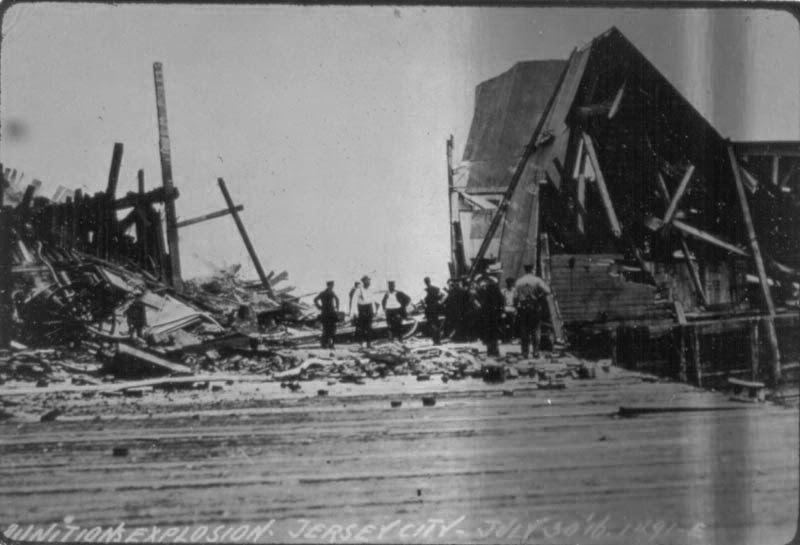But Huge Loans and Arms Sales to Allies Bring Doubts.
German Sabotage in U.S. Spreading.
Special to The Great War Project
(25-28 December) The American President, Woodrow Wilson, spends 1915 keeping the United States out of the war.
But his policy of neutrality is making that a hard stance to maintain. Wilson believes neutrality means the U.S. can lend money to the French and British, and sell weapons to the Allies as well.
Germany is not pleased with this policy.
Just one example of how this policy works. In the summer of 1915, ten 500-ton submarines, built by the Bethlehem Steel Company, sail for Britain. Although Wilson opposes the British arrangement with Bethlehem, by the time the subs are finished, writes historian Thomas Fleming, “neither President Wilson nor the U.S. Department of Justice said a word.”
Bethlehem Steel will earn incredible profits from this sail: “More money than the company’s total gross for its previous eight years.”
“The Bethlehem story,” observes Fleming, “is a pithy summary of the evolution of the United States into a branch of the British armament history during the 32 months of its neutrality. Wilson talked – and talked and talked – about neutrality and apparently convinced himself that he was neutral.”
“But the United States he was supposedly running was not neutral – in thought, word or deed.”
Another great American benefactor of the British is the international banking firm, J.P. Morgan. “Morgan and his fellow bankers were the key players in the shift from genuine to sham neutrality.”
One of Morgan’s most profitable transactions is a $100 million loan to France to buy weapons, mostly from the United States.
In 1915, American support for the Allied side becomes even more obvious. Wilson’s Secretary of State by then is Robert Lansing, a dedicated Anglofile. After Lansing becomes Secretary of State, he writes privately, “I have come to the conclusion that the German Government is utterly hostile to all nations with democratic institutions because those who compose it see in democracy a menace to absolutism and the defeat of the German ambition for world dominance.
“Germany must not be permitted to win this war or even to break even.”
The end of 1915 sees the United States providing up to forty percent of the Allied war materiel. Reports Fleming, Russia and France are broke, relying on Britain for their financial needs. “Of the five million pounds England spent on the war each day, two million pounds…were spent in the United States.”
The British are not simply buying American weapons. British government representatives in many cases are supervising the manufacturing of these weapons. According to Fleming, “ministry agents were in hundreds of U.S. factories where orders were being filled; agents also rode the freight trains and supervised loading at U.S. docks to prevent sabotage.”
It should not come as a surprise then that sabotage is real. “German agents operating under deeper cover,” reports Fleming, “planted bombs in U.S. armament factories, on docks where the deadly products were loaded, and in the holds of freighters carrying them to Europe.”
There is nothing more important to Wilson than to bring about a peace agreement between the belligerents in the European war.
But American actions at this point in the war a century ago make that all but impossible.
The Germans have little use for President Wilson’s protestations of neutrality.
“It is hardly surprising in light of what was transpiring in the United States,” observes historian Fleming, “that the leaders of Germany looked with growing skepticism on Wilson’s claim to be an unbiased peacemaker who could mediate a settlement between the warring nations.”




Wouldn’t it be much harder to attempt the facade of neutrality today, with so much social and decentralized information?